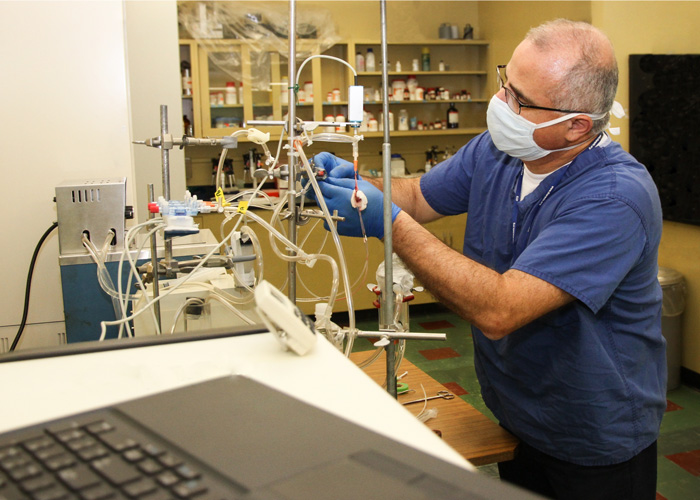Shah Dissertation Abstract
Computational Modeling of CAR-T Cell Signaling and Function
Dissertation Date: June 17, 2025
Chimeric antigen receptor T cell (CAR-T cell) products are engineered T cells modified to express a fusion of proteins to target tumor cells and induce antitumor immune responses. While this therapy is remarkably successful in treating specific cancers, response rates vary greatly between studies, patients, and cancers. Currently significant efforts are being devoted toward optimizing the engineering of CAR-T cell products through modulating CAR construct designs and cell manufacturing protocols to improve clinical response to therapy. Prior studies have shown that differences in CAR constructs and manufacturing protocols result in CAR-T cell products with varying degrees of functional ability. How these variations modulate the function of CAR-T cells and ultimately influence therapy response is becoming increasingly difficult to study solely in experimental and clinical settings due to the enormous complexity of the system and vast number of possible variables and perturbations involved. A computational systems biology approach, where computational models can be used to define complex biological interactions and predict outcomes, can provide rapid and cost-effective solutions to this problem. In this dissertation, we aimed to build computational models that allows us to simulate in silico (1) the molecular interactions between tumor cells and CAR-T cells through modeling CAR T-cell signaling networks, and (2) CAR T-cell product functionality through modeling the cytolytic and proliferative capacities of CAR-T products using data from in in vitro experimental assays. For our first aim we used a prior knowledge based approach of the system to develop a logic-based signaling network model that incorporates activation, inhibitive, and cytotoxic pathways governing interactions between CAR T-cells and tumor cells and iteratively refined our model to match expected system behavior. This model was used to study CAR-T and tumor cell signaling networks under various overexpression, knock-down (KD) and knock-out (KO) conditions. These studies demonstrated that disruptions in intercellular signaling of CAR-T cells instead of inhibitory receptor signaling were more likely to abrogate CAR-T cell function and cytotoxicity. The results from these studies can assist in hypothesizing new CAR design strategies that can ensure cellular functionality. For our second aim we used an ordinary differential equation (ODE)-based approach to develop a pharmacokinetic and pharmacodynamic model (PK/PD model) for CAR-T cell function in in vitro cytotoxicity assays. We used this model to derive CAR-T cell product-specific functional parameters using datasets collected from pretherapy in vitro cytotoxicity experiments for patients receiving LV20.19 CAR-T cell therapy. Our in-silico results were then correlated with clinical outcomes to demonstrate how these model-derived product parameters are associated with patient response to therapy. These studies suggest a relationship between a model parameter related to cooperativity between cells in the CAR-T cell products and durable therapy responses. Supported with additional experimental datasets, the computational methods and models developed here have the potential to enable predictive and personalized medicine in cancer immunotherapies.
Return to Dissertation Schedule


